Faculty Job: Myths & Realities – an interview with Gabriela Auge
About you
Describe your journey from student to newly appointed faculty
I graduated from National University of Quilmes, Argentina, with a degree in Biotechnology. I then started my PhD with Dr Rodolfo Sánchez at IFEVA (Institute for Research in Physiology and Ecology), School of Agronomy, University of Buenos Aires. When I got my PhD degree, I stayed in the same institution to do a first short postdoc with Dr Roberto Benech-Arnold. When my funding ended, I looked for other jobs and worked briefly as field applications specialist for a lab vendor. But as academic research was what I loved, I left the company job and did a second postdoc at Duke University (Durham, NC, USA) with Dr Kathleen Donohue. In 2017 I returned to my home country with a position supported by CONICET (National Council for Science and Technology, Argentina) at Fundación Instituto Leloir in Buenos Aires, and even though this position is equivalent to a tenured position, I am affiliated to the Plant Molecular Biology Lab led by Dr Pablo Cerdán. Last year I got a group leader position in the Department of Physiology, Molecular and Cell Biology, School of Natural and Exact Sciences, University of Buenos Aires. I am right now fully invested in getting funding to get my lab up and running.
What inspired you most to pursue your current career?
I had a very good and engaging Biology teacher at high school, she was great in showing us the wonders of the biological world and especially genetics. I decided to study something of the sort in my junior year of high school and Biotechnology fit well with my interests. While I was studying Biotechnology, I fell in love with plants in a General Physiology lab and it was a one-way trip. My first job after graduation was as a teaching assistant in Plant Physiology, I kept learning more about plants and being amazed by them. During my PhD, I started working with seeds. I became more and more intrigued by these little structures (not so little sometimes!), how do they know their environment? How do they make the decision to germinate? How long can they last in the soil bank? All these questions (an many more) have guided my work since then.
What is the major focus of you research team?
We are trying to understand how plants integrate environmental information to match growth with seasonal changes. We are exploring the molecular mechanisms underlying germination and flowering, arguably the two most important developmental transitions in the plant life cycle. Especially, we are investigating the role of pleiotropic genes (regulators of germination AND flowering) and starting digging into epigenetic mechanisms. We are using Arabidopsis thaliana mostly, but also two native tree species from Patagonia, Nothofagus pumilio and N. obliqua, and weedy rice as native and weed model species, with the goal of understanding the importance of the processes we are studying in the lab in natural and agricultural contexts.
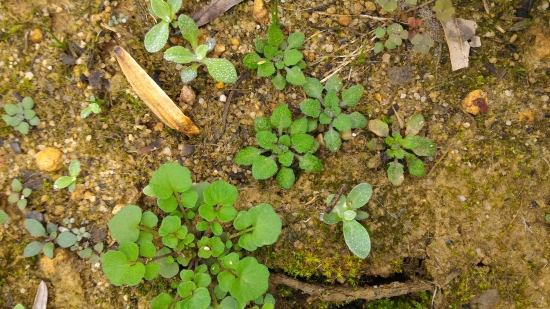
Which conferences do you regularly attend?
I like Plant Biology meetings and always try to find funds to support my attendance. I also try, whenever I can, to attend the meetings organized by the International Society for Seed Science, the seed biology community is great and I enjoy and learn a lot in these conferences. Regionally, I attend the Argentinian Plant Physiology meeting quite regularly, and next October I’ll be attending for the first time the Latin American Genetics Conference (alag2019.org), you could find me there!
Who are your current collaborators?
I keep working closely with my postdoc advisor, Dr Kathleen Donohue from Duke University, with whom we have common interests (she puts me in an ecology and evolutionary biology context whenever I need it, I learned so much from her!). I also have projects in common with Dr Toshiyuki Imaizumi from NARO, Japan. In Argentina I work closely with Dr Pablo Cerdán from Fundación Instituto Leloir (Argentina), who gave me a space in his lab to develop my ideas; and Dr María Verónica Arana from INTA Bariloche, with whom we share the interest of understanding the genetic bases of adaptation in natural environments.
About your job hunt
How long did it take you from the beginning of searching faculty jobs to get one?
The academic path in Argentina is different from that in the US. Most of the researchers trying to stay in academia apply for what we call the “Researcher Career Path” from CONICET (kind of a tenured position). This is similar to applying for a government job (it is government job) and it pays for your salary. There’s a yearly call in which you present a proposal with support of a senior researcher and an institution (both give you the workplace). Your application gets evaluated with thousands of others by a special committee in your discipline, if you get recommended by the committee, your recommendation gets to the board and there, according to the current and future budget allocated to the area, you can get your position or not. The whole evaluation process takes at least a year, the admission can take another one. I was lucky to get my position in the first try, there are over 3000 applications per year and less than 500 positions available for the whole country. I applied in mid 2015, got admitted in mid 2016 and started my position in early 2017.
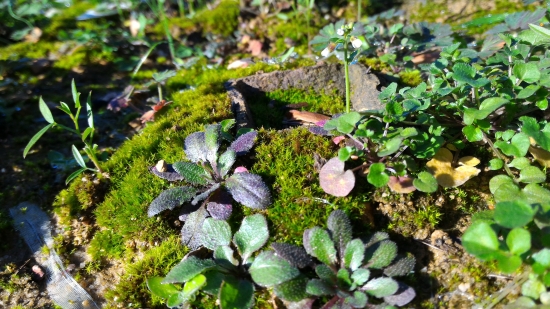
During your job hunt, what did you learn about yourself or about the process of finding an academic job?
Applying for this position is quite simple and straightforward, once you have a PI and institution to support you, you just need to get the best proposal you can and submit it. It is quite stressful though as you need to prepare yourself as a scientist for years if you want to follow this path. As there are only a few spots, the more you produce, the better chances you have. I’ve seen excellent researchers with long CVs leak through the cracks of the system.
There are also some full time research+teaching positions at universities, but only a handful of them and much more difficult to get.
From myself I learned that I could reflect ideas and hypotheses well in a proposal, that’s reassuring and certainly a learning curve!
Based on your experiences and the feedback you got during the job search, what do you think are key skills and accomplishments that a successful candidate must demonstrate?
As the process is different for getting a tenured position in Argentina, I cannot say what recruiters in other countries look for. What helped me get where I am, I guess, were having good publications I am happy with in good journals in my field, having experience working in different environments that take you out of your comfort zone (studying or doing a postdoc abroad), having a good support group (including past and current advisors and family) and a good life/work balance (or the best you can get at least) that helped me think clearly.
Which published paper was the most influential for your career or getting the faculty job?
I am proud of most of my papers, the ones that set my path were not published yet when I applied for my position, but the one I think is key to my work is the following:
Auge GA*, Blair LK, Neville H, Donohue K. Maternal vernalization and vernalization-pathway genes influence progeny germination in Arabidopsis thaliana. 2017. New Phytologist. doi: 10.1111/nph.14520.
Advice for job applicants
Beyond your research and publications, how did you prepare for the academic job hunt during your postdoc?
I worked hard to improve my communication skills, taking several science communication courses. I think these were well-invested time as I have not only learned how to communicate with a broad audience, I also incorporated tools that help me get better at communicating with other scientists. Regarding time management, I try to work in a fixed schedule, Monday through Friday from 9 to 5 and fit all I have to do (as much as I can) in that time. Weekends are for family unless I have a pressing deadline. This help me get fresh air and help me start the week motivated and full of energy. It works for me, it doesn’t have to work for everyone though.
How did you prepare for the actual job hunt? How did you identify potential opportunities, prepare your application materials, and prepare for interviews?
As I said before, the career path in Argentina is different, I just needed to make the decision of going back to my home country and then finding the right PI and institution to support my application.
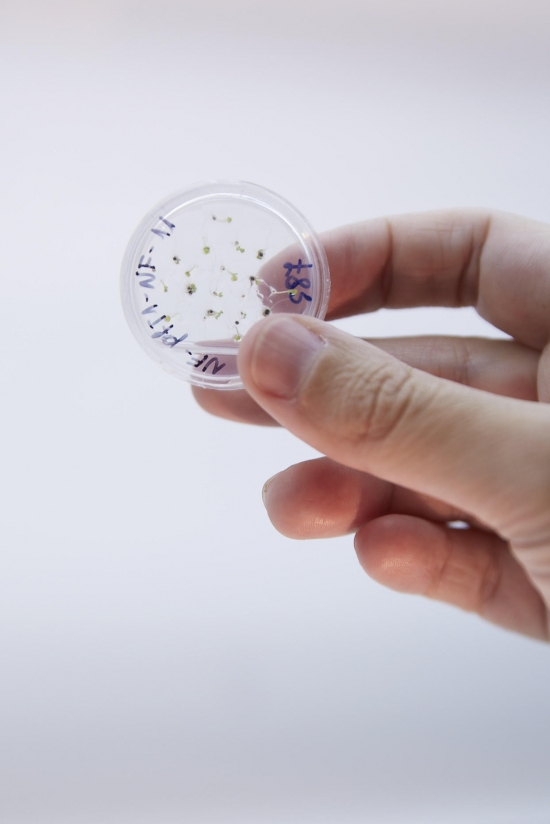
About you as a faculty member
What were the initial challenges to starting your own lab?
As I have the support of a established PI as soon as I started in my position, I had a lot of things already settled like having funding and a place with all the infrastructure I needed to work. When I got the lab space to start working independently, I found many obstacles in my way: lack of funding (budgetary cuts in Argentina, closing funding schemes and no disbursement of awarded grants), lack of infrastructure in my new workplace, increasing teaching duties and institutional service have hindered my chances of fully invest my time in starting my lab.
What qualities do you look for when recruiting for your lab?
I’d like to have a diverse lab with people from different backgrounds that ultimately enrich the work we do. People should have some level of independence, motivation and willingness to learn from the other members of the group. I am an easygoing person, with a lot of patience but also rigorous about work, people in my lab should be rigorous too.
How do you manage “work-life balance” as a faculty?
If somebody know how to, I’m listening! What worked for me before is not working that much right now. I keep trying to get my sacred family time though, that’s not negotiable, but my schedule extended a lot lately.
Whom do you like to thank for supporting and inspiring you along this journey?
My husband and daughter always supported me throughout this journey, they were ready to pack their bags whenever it was needed and excited to come with me wherever I went. I have some science friends that are in the same path in whom I found a strong support group. I also have had very supportive advisors, Kathleen Donohue and Pablo Cerdán, both of them have had my back for years now, I cannot appreciate what they have done more!
If prospective students and postdocs want to reach you, where can they contact you and read about your work?
Email: [email protected]
Twitter: @gabyplantbio
Website: gabyauge.weebly.com


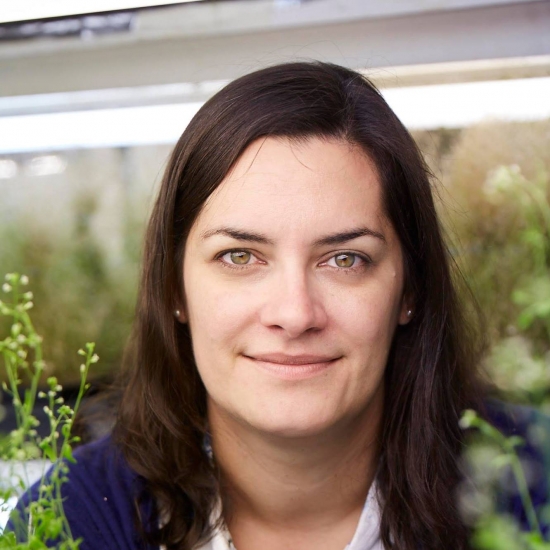
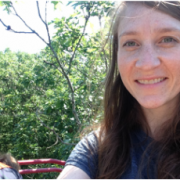
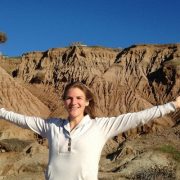
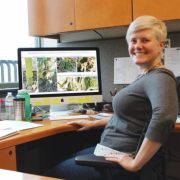
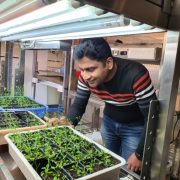
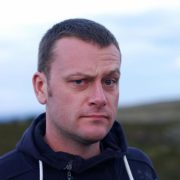
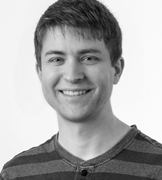
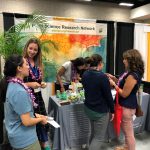
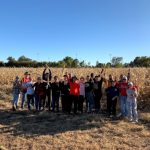
Leave a Reply
Want to join the discussion?Feel free to contribute!